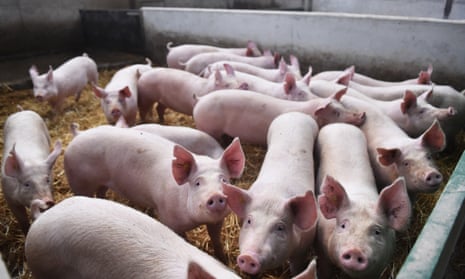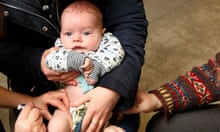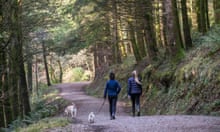The UK has detected its first human case of H1N2, a swine flu strain that has been reported in 50 people worldwide since 2005.
How many people have been infected?
The UK Health Security Agency (UKHSA) says it has confirmed that one person has been found to have Influenza A(H1N2)v, which is similar to flu viruses circulating in pigs in the UK. The UKHSA has formally notified the World Health Organization (WHO) about the discovery.
How did the person become infected?
The case was discovered as part of routine national flu surveillance undertaken by the UKHSA and the Royal College of GPs.
The patient was tested by their GP in North Yorkshire on 9 November after experiencing respiratory symptoms. H1N2 was later identified via polymerase chain reaction (PCR) testing and genome sequencing.
The person infected, who has not been identified, had a mild illness but has now recovered. They were never hospitalised and were not known to have worked with pigs, the Guardian understands. How they came to be infected remains under investigation.
Is this the same strain as the one that caused a pandemic in 2009?
No. Swine flu is usually caused by three subtypes – H1N1, H1N2 and H3N2. They occasionally infect humans, usually after direct or indirect exposure to pigs or contaminated environments.
The strain that caused the 2009 pandemic – H1N1 – now circulates in humans seasonally and is different from the viruses circulating in pigs today.
There have been 50 human cases of H1N2 reported globally since 2005, including some in the US. The new case is the first to be detected in the UK and is unrelated genetically to the previous H1N2 cases.
What is the advice?
The UKHSA’s advice for all respiratory symptoms remains the same – avoid contact with other people while they persist, particularly if they are old or have existing medical conditions.
How concerned should I be?
The UKHSA says it is “monitoring the situation closely” and is working to assess the characteristics of the virus and the risk posed to human health.
There is currently no evidence that shows H1N2 has pandemic potential and scientists do not yet know how transmissible it is. Officials are trying to work out how serious a threat it represents.
What if I live in North Yorkshire?
The UKHSA is taking steps to increase surveillance on existing flu programmes involving GP surgeries and hospitals in areas of North Yorkshire.
Close contacts of the person involved are also being followed up by the UKHSA and its partner organisations and people have been urged to test if asked to do so to help with the detection of cases. They will also be advised on further care if they have symptoms or test positive.










